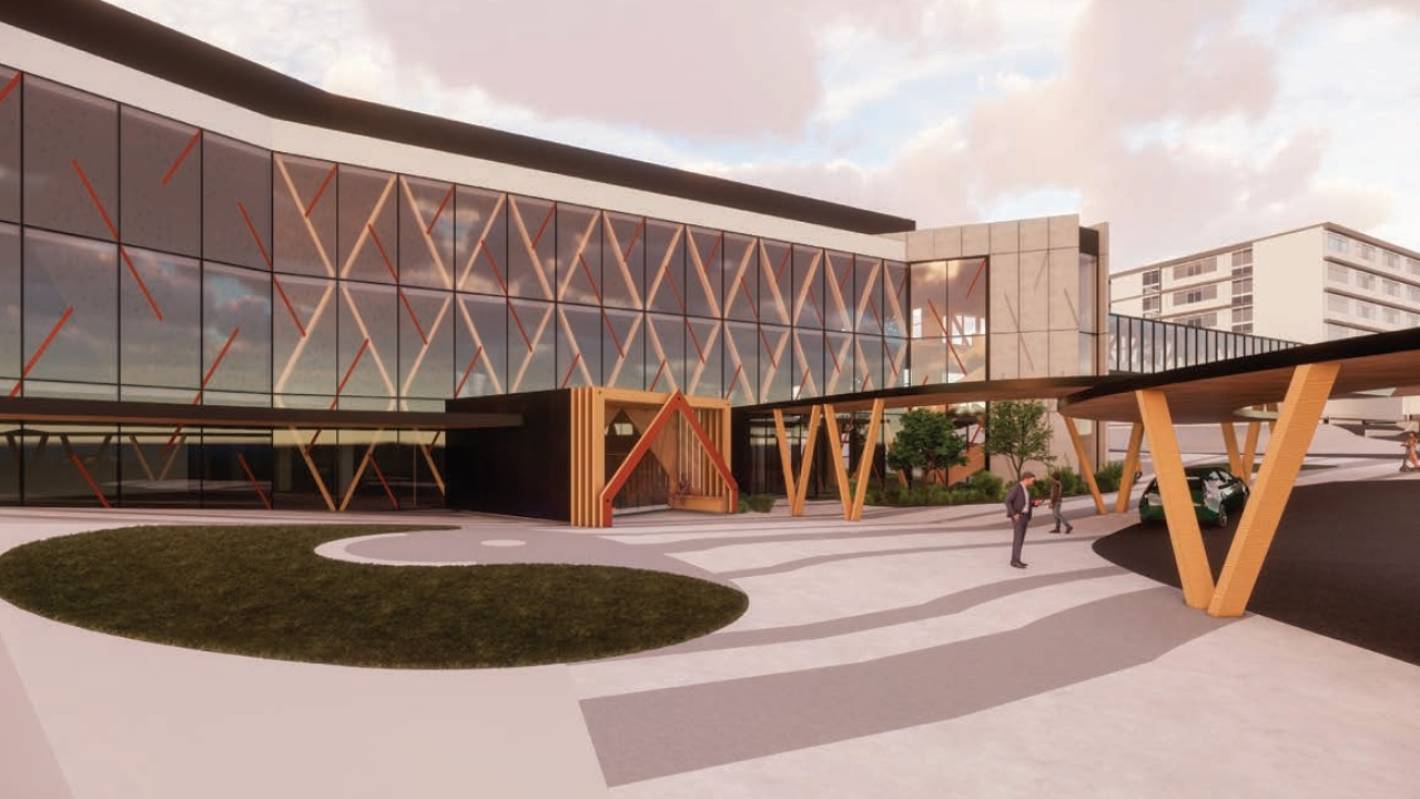The need to replace wards at Whangārei Hospital is so great – with pipes threatening to burst and health and safety concerns – the Government cannot fund it all in one stage.
Instead, it has funded $759 million for stage one of the hospital redevelopment and committed to fund a second stage, worth about $200m.
Health Minister Andrew Little made the announcement in Whangārei on Thursday, saying he witnessed the poor state of the hospital in a visit last year.
“I saw things in the hospital that I don’t think I have ever seen in a hospital before; when I talk about that, I mean the condition of the hospital,” he said.
READ MORE:
* Northland deserves quality healthcare, Whangārei mayor says as hospital struggles
* Covid-19: Whangārei hospital at capacity with Omicron surge yet to hit
* New $500m hospital for Whangārei, whānau empowerment, key priorities in health reforms
“When I looked at the facilities here, I saw corridors on ward blocks that were just in a very, very poor state, I saw an ED struggling to keep up with demand, and a range of other things.”
The redevelopment, called Pihi Kaha, will be a new building on Hospital Rd, and will connect to the existing campus.
Te Whatu Ora/Supplied
The $759m Whangārei Hospital redevelopment includes an ED three times as large and an acute services building.
The first stage will include an emergency department with three times the space of the existing ED, an acute services building with 10 operating theatres and a child health unit, including a whānau house and emergency accommodation.
A 158-bed ward tower, with four medical and surgical wards and an acute assessment unit would be built in stage two.
The child health unit is due to be completed by 2026, with the remaining works – including the ward tower – finished by 2031.
Dr Nick Chamberlain, Te Whatu Ora public health services director, said the project would be a big deal for Te Tai Tokerau.
Te Whatu Ora/Supplied
Stage one of the Whangārei Hospital redevelopment includes a child health unit to be finished by 2026.
“It will be the single biggest investment in Northland, I’m pretty sure, with 500 people working, living and playing here,” the former Northland District Health Board chief executive said.
Northland has the highest population growth and highest health needs in Aotearoa, Chamberlain said.
“The biggest gains in health equity are not going to be delivered by bricks and mortar, but the health and safety concerns for our staff and ongoing costs of maintenance [shows the need].”
Little acknowledged the services of health staff were key, and thanked all health workers for working in what was an “incredibly challenging time”.
A lack of doctors has seen one Northland hospital – Rawene Hospital in Hokianga – cut its after-hours services.
But Little said the new hospital redevelopment was important for Whangārei Hospital workers.
“It’s about providing an environment for health workers where they can do their best without worrying about tripping over the lino or the pipes are going to burst.”
The total cost was a large commitment from the Government, but reflected the neglect of health infrastructure and the health system over many years, he said.




